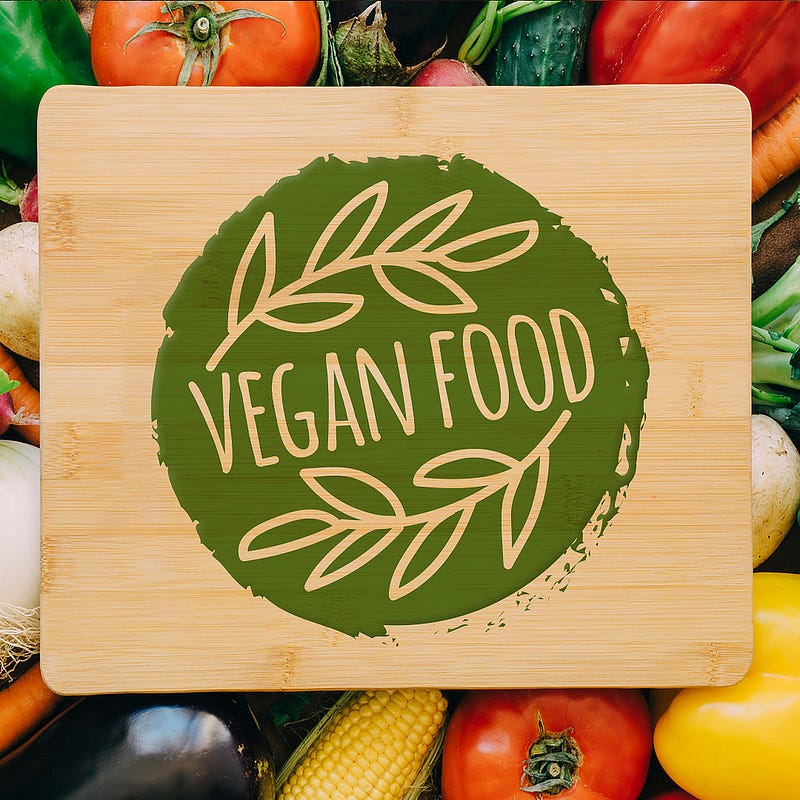
Veganism, the diet that eliminates the consumption of all animal products, has undoubtedly marked itself as one of the trendiest and fastest growing diets of recent years. There’s been a 600 percent increase in Americans identifying as vegan since 2014, and a higher demand for plant-based foods, with an 8.1 percent increase in 2017. The food system in the United States is quickly changing to meet this demand, with grocery markets, school cafeterias, and restaurants all over the nation augmenting their selection of vegan-friendly foods as a business tactic. While some convert to veganism simply because of ethical beliefs, others are doing it with the assumption that it’s more environmentally-sustainable and for its supposed health benefits. With all of these presumptions in mind, I asked myself, how much of the vegan narrative is actually true, and how much of it is speculation?
One of the biggest reasons many have made the change to a vegan diet is because of the belief that it is more environmentally-friendly. Within this claim is the argument that meat production increases greenhouse gas emissions from methane, also known as “cow farts,” that cattle release. Methane is a byproduct of digestion. Here, it is important to distinguish factory-farmed cows from grass-fed cows.
Factory farms, which raise a total of 78 percent of cattle in the United States, feed cows with grains and inject them with hormones and antibiotics to reduce production costs. A study by the National Trust titled “What’s Your Beef?” found that when accounting for carbon sequestration, grass-fed beef actually reduces carbon emissions, contrary to many reports that stated otherwise and relied on a limited life cycle assessment to assess greenhouse gas emissions.
According to
The Huffington Post
, the study found that “well managed pasture on the less intensive systems […] actually reduced net emissions by up to 94 percent.” Contrary to popular belief, the problem of cow flatulence is not wholly related to the cows themselves. Rather, the factory style of farming production changes what a cow’s natural diet is supposed to be (grass) and replaces it with harmful grains, which affect the cattle’s digestion, the net result being that a large quantity of methane is produced. The issue, then, has to do with how the cows are being raised.
Another issue raised by veganism advocates regarding the environmental impact of animal consumption is the immense amount of water used in the process of meat production. The Global Agricultural Organization states that 69 percent of the world’s freshwater withdrawals are used for agricultural production, and most of that water is used for the livestock’s food consumption. Industrial livestock have a far higher water footprint than traditional and organic farming, since most of the grains used to feed them are corn and soy crops, which are irrigated. Feed from areas with natural rainfall typically doesn’t rely on irrigation channels, but there is an issue brought up when droughts occur.
The problem with associating all animal consumption to an excessive amount of water use is that it doesn’t account for sustainable livestock production, which doesn’t pose nearly as much of a water usage problem. It is also necessary to address how many of the staple foods used in vegan diets also require extremely high amounts of water for production, such as how 280 kilos of water used to produce half of a kilo of avocados, and more than four litres of water used to produce a single almond.
The health benefits from a vegan diet are also questionable. Vitamin B12 is found in dairy, fish, and meat products, which are all absent from a vegan’s range of food options. A lack of vitamin B12 can have serious health implications. Chris Kresser, author of
The New York Times
bestseller “Your Personal Paleo Code”, argues that Vitamin D levels in individuals with vegan diets can be as much as 74 percent lower than those who are not. Other vital nutrients absent in a vegan diet include Omega 3s, creatine, short-chain fats, and carnosine. A study by
Psychology Today
found that 84 percent of vegetarians and vegans eventually return to consuming animal products, with 29 percent reporting to have had health-related issues from the no-meat diet, and 43 percent saying that they abandoned their plant-based diets because of the difficulty associated with maintaining it.
While the vegan diet may seem appealing to many, it is certainly not viable for all, especially given the health implications it can create. The vegan narrative mostly claims that all animal consumption contributes to environmental damage and the rise of global warming, but it’s important to recognize the difference between factory farming and organic, sustainable, traditional agricultural farming. I fully agree that there is an unsustainable and unethical agricultural system in place in the United States, but it’s unfair to associate the consumption of all animal products to the catastrophic rise of greenhouse gas emissions when most of the implied damages come from one system of agricultural production.
If we change the discussion from avoiding all animal product consumption and believing veganism is the path all individuals should take, to addressing the problems within the actual food production system, a much more effective and mindful solution to these serious issues can be reached.

















